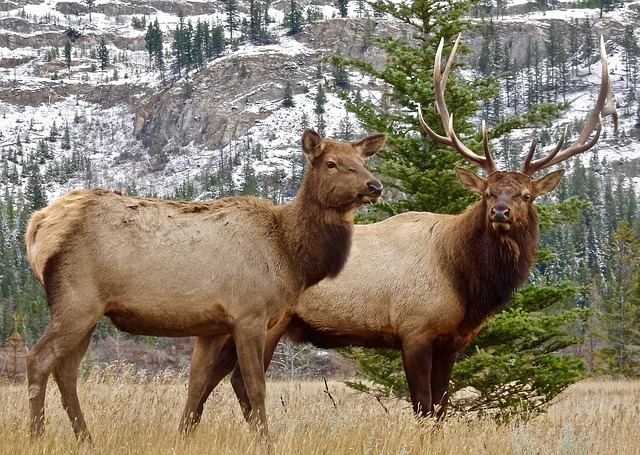Jun 21, 2017
HOW TO AVOID ALTITUDE SICKNESS
Several years ago I was on an elk hunt near Craig, Colorado, with a few flatlander friends of mine. As we don’t see each other that often, the first night, the eve of the hunt, was a celebration. We were already in camp, having packed in about seven miles. The outfitter dropped us off with a map of where to hunt and a radio to call him if there was an emergency or a dead elk to haul out. We’d quarter it and get it to camp. They’d come pick it up.
The alarm clocks nasty harangue arrived early the first morning. Being the native, I took it upon myself to get up first and have coffee and breakfast ready for my buddies despite my pounding head. The flap of the canvas tent protruded outward and it was Bob that stumbled through on shaky legs. Imagine an elephant giving birth. That’s what I felt like I was witnessing.
Ten minutes passed and still no John. What I didn’t know right then, but would soon find out is that he’d been vomiting since the wee hours with what he said felt like a migraine. And at first it was funny to Bob and me. Dang rookie can’t hold his liquor!

We decided to let John sleep through the morning hunt. Surely he’d be fine by afternoon. But when we returned to camp for lunch, he was still in the same condition and it’s unlike John to let a little hangover deter him from doing anything. The camp doctor’s (mine) second assessment could be the only plausible diagnosis: altitude sickness.
What is Altitude Sickness?
Also called acute mountain sickness, altitude sickness occurs when you cannot get enough oxygen from the air. While you eventually become acclimated to altitude, it affects people in different ways, especially if you live close to sea level. Ever driven over a high mountain pass and gotten an instant headache?
Causes
Altitude sickness has no friend or enemy, meaning that it doesn’t matter if you’re male or female, or what kind of physical condition that you’re in. The pure and simple explanation is that the body needs oxygen in order to function and we all react to it differently. And the further from sea level you travel, the less oxygen. Whether you’re arriving for a ski vacation in the Rockies or hiking a high eastern peak, your body is going to have a reaction to the thinner air, whether it be mild or more severe, like John’s case was.
How to Treat It
When we diagnosed John’s symptoms as severe altitude sickness, we were able to radio the main camp for a bottle of oxygen. He was getting progressively worse because at first he couldn’t hold down water and we weren’t able to take him lower. Some hours later two tanks arrived and John immediately started drawing from the mask. Though it took two days of complete rest and a lot of oxygen and water, he did make a full recovery and was able to join us on the hunt.
Hindsight
Now I know better. First of all, we shouldn’t have indulged in the celebratory spirits the way we did on night one. The only thing our little band should have been consuming was water. Dehydration only added to the intensity of John’s headache and stomach cramps.
Secondly, it wouldn’t have been a bad idea to spend a couple days in Denver, which is not exactly low, though not as high as where we were in the western part of the state. This can help the body adjust. Plus, if sickness does occur, you’d be much more comfortable in a hotel room rather than a tent in the middle of nowhere.
On top of the ibuprofen I carry for body soreness caused by the physical nature of such a hunt, I’ll also make sure that either myself or my guests have a doctor prescription of acetazolamide (Diamox), which speeds up the rate at which the body gets used to higher altitude. As a matter of fact, you should begin taking these medicines before you arrive at high altitude.
Eating a lot of carbohydrates can also help reduce the risk of altitude sickness. Foods such as breads, cereals and pastas are ideal. Carbs are good for energy and can help give your legs that extra boost when the hunt begins.
Despite the initial setbacks with John’s prolonged hangover (altitude sickness), we still had a fantastic time on the hunt, even though we didn’t bring home a single elk. But that’s another story. We know you appreciate your hunting adventures with friends just like we do, so take extra precautions to keep everyone on their feet.
